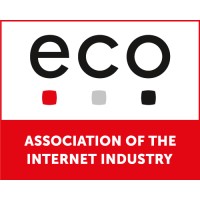Lessons learned from the crisis? A study on digital resilience
Ekkehart Gerlach from the dma provides insights into the challenges and benefits of New Work and the impact of digital resilience on companies.

©AndreyPopov | istockphoto.com
At the latest since the first Covid lockdown, everyone has been talking about resilience, i.e. the ability to respond to crises, make appropriate adjustments, and master them. But how resilient are companies, especially from the perspective of digital information and communication technologies (ICT)? To find out, the German ICT and Media Institute (GIMI) and KölnBusiness 2021 commissioned the Fraunhofer Institute FIT, TÜV Rheinland and the German ict + medienakademie to conduct a study on the Covid-19 pandemic. For this purpose, the German Rhineland was examined as a “test bed”. With its large number of different industries, company sizes, and a wide range of structural characteristics, the Rhineland is a good reflection of the German corporate landscape.
The study focused in particular on the question of what impact the radical switch by companies to online collaboration among employees had on the organization of work, communication behavior, and the motivation of those affected. Since user surveys can only capture individual personal perspectives, 100 companies were surveyed directly, in the person of a managing director or board member, in long in-depth interviews. How do such top decision-makers from a wide range of industries and sectors assess the resilience of their company, what experiences have they themselves had with regard to working from home, and where do they think changes need to be made for the future?
Some of the answers were to be expected, but others were quite surprising. The latter is perhaps true of the statement by a staggering 98% of respondents that working from the home environment in their company works rather well to very well overall, although there were many reports of massive obstacles and all kinds of adversity: such as the lack of a suitable office space – or the kitchen table syndrome – with adults and children working side by side. The statement that the technical equipment for working from home has been guaranteed by the companies (89%) – while at the same time maintaining a high security standard – also seems to be a bit too rosy. At the same time, one after another reported about new security problems in the home working environment. By the way: Although the survey found smaller companies had already ahead of the pandemic more experience with working from home and flexible working, nearly 70% of respondents said large companies had fared better through the Covid-19 pandemic.
Be that as it may, the vast majority of companies perceived a positive digitalization push in their businesses – in marked contrast to other sectors also surveyed, such as the school system, which 90% of respondents attested to not being able to cope well with the challenges of digital teaching, if at all. The biggest sticking points on the technical side, with infrastructure deficits and system instabilities, are more to be seen as a network problem than a problem on the part of the companies.
What remains as more than just an impression of “new work” is that while companies are pushing more and more for their employees to come back to the office, employees are pushing for some remote working to remain. And this is expressed on both sides with rustic formulations – not quite with the rhetoric of U.S. companies, where bosses have been known to threaten to terminate contracts if employees do not return to the office environment, but with an unusually fervent request from German CEOs to do so. Or, on the other hand, the anecdote of a boss who asked an executive to return and then got as an answer the question of when this executive should do the shopping, housework, and laundry in the future.
Aside from such stylistic flourishes, companies are quite realistic about the collaboration of their employees: Work routines are seen to run smoothly (97%) and video conferencing has become commonplace (92%) – incidentally also together with other companies (but not with the public sector!). It is no wonder that the respondents state that the productivity of their employees has increased significantly during the pandemic compared to the time before the pandemic – unimportant things are put on the back burner or simply dropped. At the same time, however, they also concede that this is perhaps the biggest problem of “New Work” – less and/or poorer social interaction among employees than in direct personal contact: While 50% of the companies perceive a better professional exchange of information online than when working face to face, it is just the opposite with regard to the topic “mutual assistance and support”.
They rate team spirit and social communication even more drastically: 37% say that team spirit works significantly worse online than face to face, and only 8% see it the other way around. In the case of social communication, the figure is as high as 58% for “worse”, compared with only 5% for “better”. And this applies not only qualitatively, but also quantitatively: The number of business communication contacts has declined during the pandemic from 25-30 daily contacts previously to 20-25 contacts, and is expected to remain below pre-pandemic levels throughout 2022.
The bottom line: The companies saw the greatest difficulties in “soft” factors such as social communication, interaction, and team leadership, as well as factors like the double burden of family/work in a confined space. On the other hand, the professional exchange of information online in the majority of companies worked at least as well, and in many cases apparently better, than on site. Only time will tell whether it will be possible to bring together “the best of both worlds”:
- Concentrating on the contacts and information that are really important for business, consistently using digital tools that are easy to use and offer real added value, looking at the technology and organization of future hybrid work and digital process models
- and keeping a good eye on the social components.
On all of these topics there will be the need for action in the future – because after the crisis is before the crisis.
Ekkehart Gerlach is Director of the “deutsche ict + medienakademie”, a division of the eco Association, in Cologne, Germany. In 2000, the academy was founded as a project of the Bertelsmann Stiftung and the state of NRW. Ekkehart Gerlach came to the academy after many years in executive positions of the high-tech industry, such as IT, telecommunications and media. Since 2006, he has led the “deutsche medienakademie” to the open market, specialising in Digitals. With a network of around 5,000 experts, the academy provides high class independent information in complex digital areas – such as expert roundtables and corporate coaching or training.





